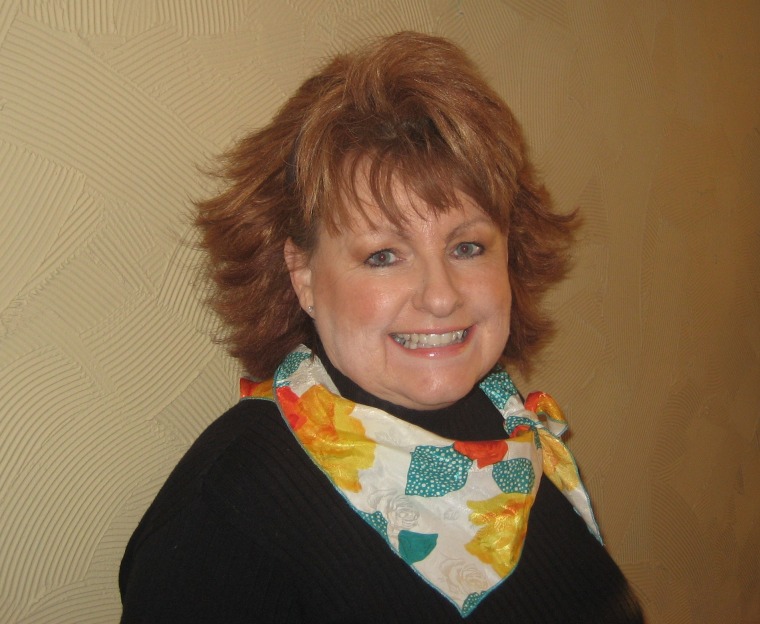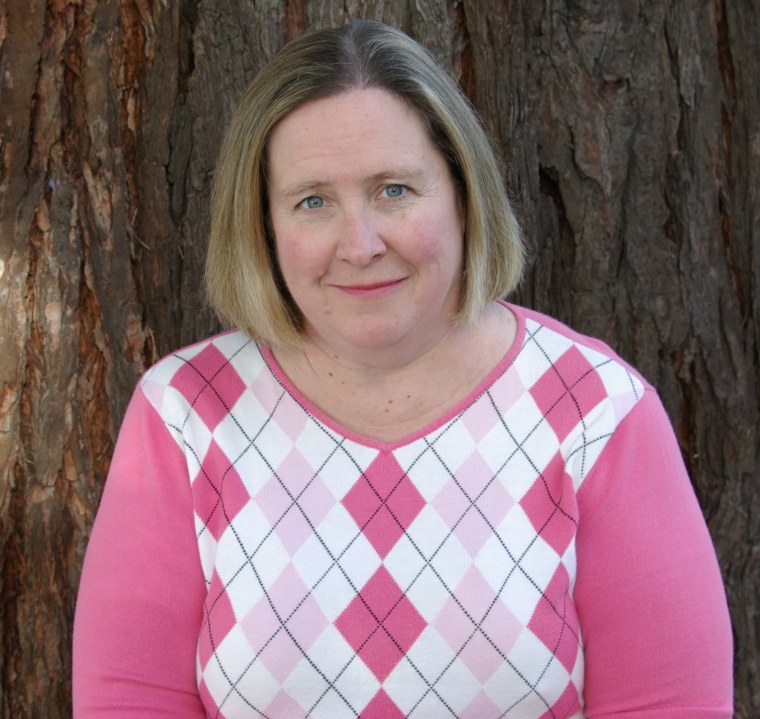Penny Mudd, 55, previously worked in Silicon Valley and is now on her way to becoming a high school math teacher.
Terry Ramey, 42, was an autoworker in Michigan and is now in his second year in nursing school.
And Barbara Higbee, 57, was a district manager for a Texas merchandising company and now works as a case manager for a women’s crisis center.
These three left their former professions for a variety of reasons from layoffs to burn out, but they chose their career second-acts for a similar motivation: to give something back.
“Now it’s my turn to help kids out there, to discover their abilities in math,” said Mudd, who was laid off two years ago after a 20-year career working for technology startups and big-name companies.
“I feel like I’m going to make a difference,” said nurse-in-training Ramey, who previously worked for Ford for 15 years.
“When I look at the personal rewards I get, that’s more important to me than money,” said Higbee, who in her old job often put in 80-hour weeks.
In search of fulfillment, many workers are now turning to so-called “encore” careers, according to Marci Alboher, a senior fellow with Civic Ventures, a think tank focused on promoting community and social contributions by mid-career and older workers. Encore careers include jobs in health care, education, green industries, government, social entrepreneurship and the nonprofit sector.
A 2008 MetLife Foundation/Civic Ventures survey found that between 5.3 and 8.4 million Americans have already embarked on encore careers; and among workers between the ages of 44 and 70, half are interested in going in that direction.
Workers in their 40s and 50s sometimes get to a point in their lives where they start thinking about a more meaningful career, said Lee Igel, assistant professor in the School of Continuing & Professional Studies at New York University. And that's been especially true during the economic downturn.
“They are turned off by the business world that didn’t do for them what it was supposed to do, and at the same time their careers didn’t really fulfill them anyway,” Igel said.
A more meaningful career
It’s not an easy transition. In fact, the tough economy that inspires some people to make the switch may also be the reason why some are unable to follow their more civic-minded career dreams, which may pay much less.
“People have lost their jobs and are looking to replace their income,” said Scott Kane, founder of the national career networking, coaching and job search company Gray Hair Management. “Their nest eggs are shrinking, they’ve had to dip into their 401Ks, and they are focused on surviving.”
Some older workers also may face age discrimination, both real and perceived, when they decide to build a new career.
“The best way to overcome age discrimination is really be knowledgeable of the field you want to enter in and be prepared,” Alboher said.
She offered some tips on how to get started:
- Research fields you’re interested in and find people who do the same work.
- Do information interviews.
- Check out sites such as Civic Ventures’ encore career site that offer career networking and links to community colleges with retraining programs for mid-career workers in a host of socially minded careers.
- Attend community events or conferences for the industry you want to break into.
- Start reading trade publications and blogs for your chosen industry.
- Assess whether you need to updated your skills.
Here’s a look at the three encore careerists mentioned above and what they faced in their pursuit of a meaningful career:
Dream of becoming a teacher
After being laid off as a program manager for a medical device company where she had worked for eight years, Mudd went into a funk.
“It really destabilizes you. I went into shock after things unraveled in my high tech career,” she recounted. “I felt uneasy about going to another company.”
Instead, she participated in career testing at a local community college, took some classes and attended a weekend teaching program through the EnCorps Teachers Program, which is working to boost the number of math and science teachers in California schools. The community college then connected her with a school where she could be a teaching assistant.
“In retrospect, it looks to other people like I had a clever plan, but sometimes you just stumble into things,” said Mudd, who has relied on savings and unemployment benefits to help her stay afloat financially during this transition.
Mudd already had a bachelor’s degree but had to take additional classes in algebra and statistics. And now she has “a very clear path” and is focused on studying so she can pass her teaching exam this summer. She expects to start teaching this fall.
From autoworker to nurse
Physically and mentally, the job of autoworker was “tearing me apart,” said Ramey. “I’m not diminishing the job a lot of people would want to have, but for me, I hated the work.”

Ramey had thought about a career in nursing, but the deciding moment came when he encountered a motorcycle accident on his way home from work. “Both (the rider’s) legs were broke and his arm, but he was conscious,” Ramey said. “My first instinct was to help him calm down, and I knew enough to try and keep him still and not take off his helmet. I didn’t panic and it didn’t freak me out.”
When offered a buyout from Ford for career retraining, Ramey accepted.
Ramey, who only has a high school diploma, didn’t plan on getting a four-year degree but decided to go for it. He’s now finishing up his second year of nursing school at Washtenaw Community College, has been doing clinical work with patients, and will transfer to the University of Michigan this fall. He hopes to graduate with a bachelor’s degree in 2012.
Financially, it has been a struggle. Ramey and his son had to move back in with his father in order to make ends meet. “It’s kind of weird, but circumstances don’t determine the person you are. It’s how you deal with those circumstances.”
Ramey has no regrets and believes he has found his calling. “My instructor in my last clinicals told me that I was wasted in the auto industry,” he said proudly.
Satisfaction from helping others
In 2003, Higbee found herself out of work after mass layoffs at the pantyhose company where she worked in management. She ended up working briefly for the Women’s Center of Tarrant County in Fort Worth, Texas, until she found another gig in corporate America.

She landed a great job as a district manager for Archway, a third-party merchandising company, but eventually grew weary of the long hours and frequent travel. She also wanted more time to spend with her grandchildren.
Nearing age 60, she asked herself: “What do I want to be when I grow up?”
She remembered how much she enjoyed her work at the women’s center. When an opportunity arose at the nonprofit, she decided to apply.
She is now a case manager in a culinary arts training program, where she helps women in need with life skills such as resume writing and budget and stress management. Despite taking a huge cut in pay, she’s happier than ever.
“Our children are out of college now, so expenses aren’t like they used to be,” she said. But, she stressed, money issues are always a concern.
“On the financial side, did I make a bad decision leaving corporate America? Yes. But when I look at the personal rewards I got, that’s more important to me,” she said.
